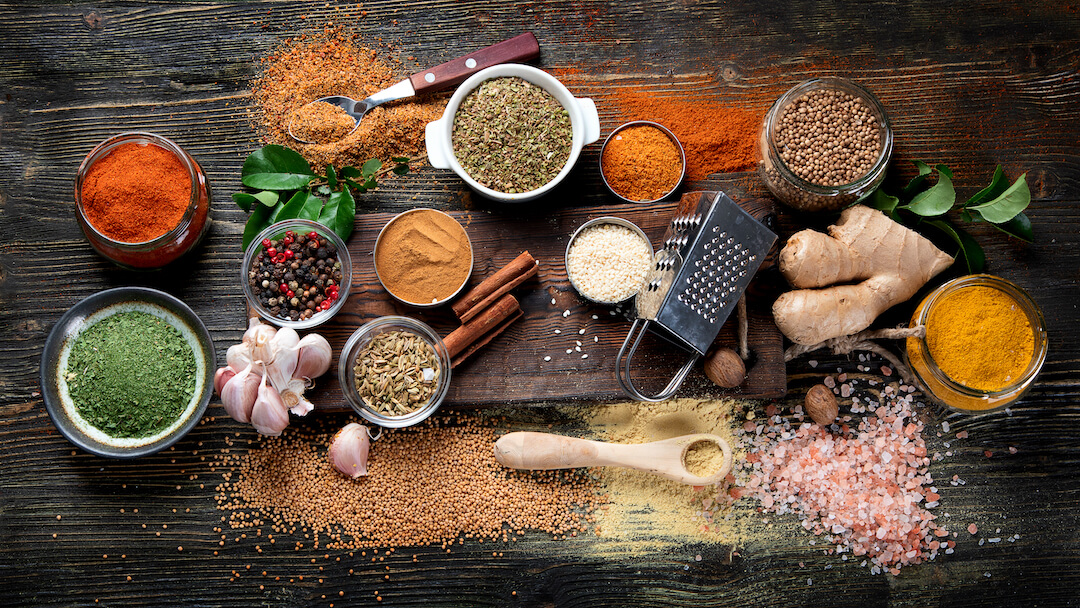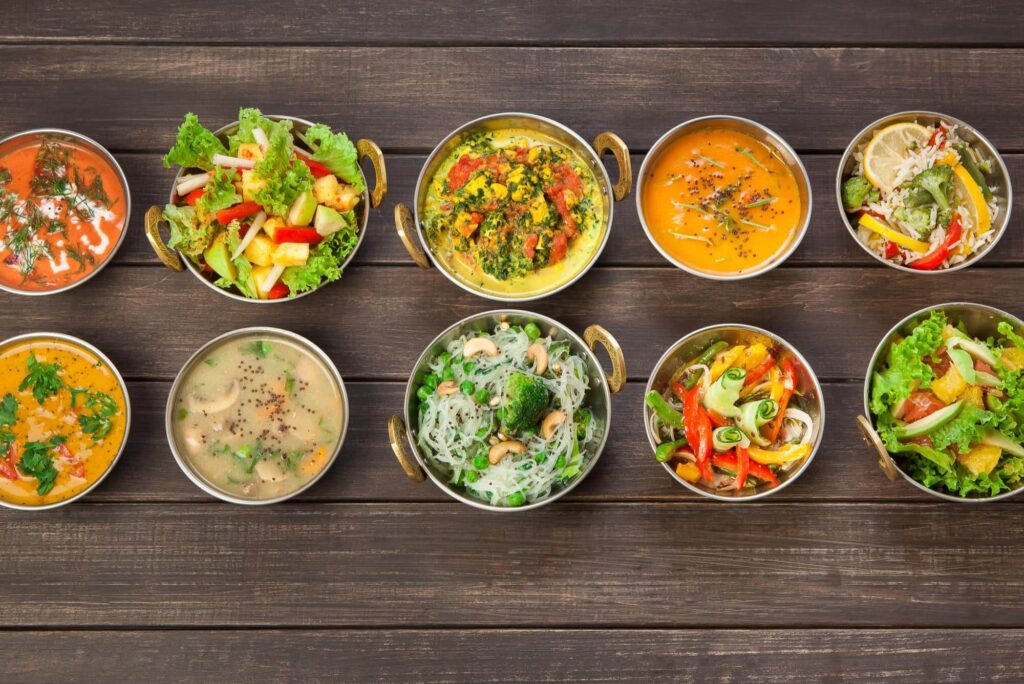
The Ayurveda includes a plethora of health-related information. Ayurveda prescribes cuisines and dietary advice. Ayurvedic dietetics and conventional meals are so close that many ancient Indian health foods may be classified as ayurvedic diets.
Health-conscious individuals across the world can be benefited from the richness of information on Indian Traditional and ayurvedic natural foods in this period of demographic globalization and worldwide food trade.
Ayurveda and Indian cuisine
The skill of balance is fundamental to an Ayurvedic meal. In terms of taste, texture, consistency, and processing methods, each of the components is expertly blended. Sweet, tangy, salted, bitter, spicy, and pungent tastes are all present in the dish, which smells delicious and increases hunger.
These rasas must be mixed in the right quantities to complement one another. In every way, Ayurvedic cuisine is well-balanced and nutritious. Proteins, carbohydrates, fats, nutrients, enzymes, and essential minerals are included as vital basic components for living.
Arunveda ideas hold that cuisine is responsible for a wide range of elements of a person’s life, particularly bodily, emotional, and mental processes. As a function of digestion, the vitamins are absorbed by the system.
Ayurveda is dedicated to promoting a healthy lifestyle and nutrition by recommending nutritious foods. No Ayurvedic meal is intrinsically better or worse, but it reacts differently to different parts of the body based on its nature.
Ayurvedic foods, when combined properly, have a lot of beneficial effects. Ayurvedic recipes help the brain and body to be in harmony.
Traditional Indian cuisine is regulated, very healthy, and scientifically packed, including antioxidants, vital nutrients, and elements that aid digestion, accelerate metabolism, and lower cholesterol levels and blood sugar levels.
Immunity is boosted, cognitive abilities are improved, concentration is sharpened, and inflammation is reduced thanks to the substances. Apart from giving wonderful taste, fragrance, and scent, Indian herbs and spices offer therapeutic and medicinal properties.

1. Khichari
There are several ways to prepare Khichari. Spices and vegetables, when used correctly, can help to balance the three body doshas. It has various features, but the fact that it is fast and simple to cook makes it a renowned meal for people of all walks of life.
This is an all-in-one diet that is simple to consume and provides power and vigor. It sustains every one of the tissues of the body.
Khichari is great for cell cleansing and anti-aging.
2. Chick Pea Curry
Chickpeas help to balance the Kaph and Pitta doshas. It is much more Kaph balanced when combined with peppers, onion, and ginger. Chickpeas are a healthy snack and an excellent medium pf providing protein to our body.
They might also help you to lose weight. It controls Inflammatory Bowel Disorder and other stomach disorders by reducing systemic inflammation.
3. Bush Beans Thoran
Bush beans are an excellent treatment for anemic health conditions: It helps to promote the flow of blood, immune function, and cardiovascular health. This has a soothing effect and relieves constipation while also calming the body. It is among the best immunity boosters as per Ayurveda.
4. Snake Gourd Curry
When it comes to the six rasas, snake gourd is classified as sour. It reduces acidity and avoids breathing issues. It also aids biological digestion and has a favorable impact on the liver and diabetic levels. The strong anti-oxidant content combats oxidative stress and promotes immune function.
5. Cucumber Casserole with pomegranate chutney
Cucumbers have a soothing therapeutic effect on the person’s body. Cucumber and pumpkin, on the other hand, lower bodily acidity and so aid in the treatment and prevention of illnesses by harmonizing the Pitta dosha. Pomegranate aids in the restoration of dosha balance. It is an herbal ayurvedic immunity booster food.
6. Ayurvedic Tabbouleh
Celery can help to soothe tensions and promote healing. It also aids digestion and maintains overall bodily equilibrium. Beans are highly nutritious, which helps to control hypertension and high cholesterol.
7. Vegetable-Rice-Pilaf
This dish is appropriate for all three doshas. Although raw vegetables like tomatoes and potatoes are not optimal meals for Vatha doshas, heating them with oil alters the properties of the components and makes them more readily digested.
8. Potato Avial
Potatoes decrease acids and therefore systemic inflammation is reduced due to their sweetness. They lower high blood pressure and decrease sleeplessness by calming the physical and mental health.
9. Papaya Curry
Papaya is good for all doshas and has a variety of health advantages. The fruit’s high fiber content aids in reducing blood pressure, while its antioxidant properties aid in the prevention of the aging process and cholesterol. It is among the best healthy ayurvedic recipe.
10. Drumstick Theyal
Moringa is still relatively obscure in the Civilized culture, yet it offers certain health benefits. Drumsticks help to reduce sensitivity to insulin, high cholesterol. It’s also a powerful antioxidant, thus it allows the body to heal.
Conclusion
When we eat, we must try to avoid doing anything else at the same time. It is crucial not to eat too rapidly and to chew thoroughly. After we’ve done eating, we may unwind for a while.
The food item is preferable to cooked food. Spices are good for digestion. Beverages should never be served ice cold and should not be taken with meals.
Having warm water, on the other hand, should always be part of a regular Ayurvedic diet to boost immunity naturally at home.